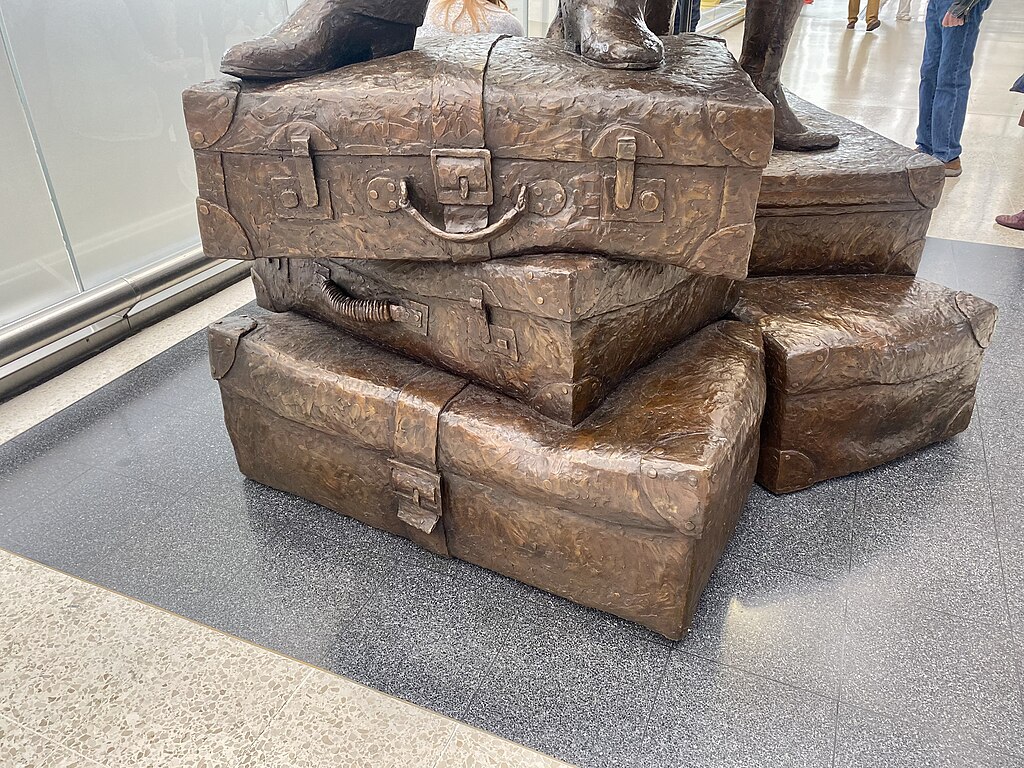THE ongoing demonisation of migrants and refugees continues to pick up pace.
The Labour government seems to have decided that the way to counter Reform UK is to become more like them.
This apparently means adopting an economically illiterate approach to immigration, seeking to stop those coming here to work and study.
The latest legislation seeks to cut legal migration.
This, whilst in a country with an ageing population and skills shortages, talks of the need for growth.
Irish people have previously experienced Britain’s special type of gratitude when coming here to work. Anti-Irish sentiment in Britain was rife during most of the 20th century.
Migrants have been vilified for many years, even while so many staffed the care homes and hospitals, built the houses and roads, harvested the crops and worked in hospitality.
Instead of gratitude, there is an ongoing hostility, seeking to criminalise and stigmatise those who have, in the main, contributed to a better society.
On the refugee side, the small boats saga has been blown out of all proportion.
Most of those coming across the Channel are desperate, fleeing for their lives.
It is not coincidental that many come from war-torn countries like Syria, Afghanistan and Iraq. No one gets into a rickety boat, with a very good chance of not making it to the other side, without being desperate.
 Suitcases at the National Windrush Monument at London's Waterloo Station (Pic: No Swan No Fine/Creative Commons)
Suitcases at the National Windrush Monument at London's Waterloo Station (Pic: No Swan No Fine/Creative Commons)In order to stop the flow of asylum seekers, wars must cease and climate change must be seriously addressed. Not an easy task, certainly.
But the UK could stop participating in these wars, including the selling of weapons into conflict zones. It could also follow policies that combat climate change.
In terms of economic migrants, the country needs a steady flow to make the economy grow.
The UK has a rapidly ageing population, with over-65s increasingly outnumbering under-16s. There have been migrants from a variety of countries over the years to meet Britain’s needs.
The Irish, the Windrush generation, Asians, and more recently East Europeans. Each has been vilified in turn until being accepted by the wider population, most of whom were migrants themselves at some point.
It was instructive to read Joe Horgan’s recent piece in The Irish Post, plotting how the Irish became accepted.
First, came the greeting of the ‘no Blacks, no Irish and no dogs’ notices in bedsit windows, then through the Troubles, to the arrival of Asian migrants. After the Irish were no longer last in, no longer the bottom of the pile, so could be accepted.
Only an economic illiterate would try to stop migrants coming to fill the job vacancies.
The government continually talks of the millions of economically inactive people, and of how the economy needs growth. So how, in a country with so many inactive, are we going to get that magic growth without migrants?
How will the NHS and care sector operate without migrants?
Who will build the 1.5 million homes promised by the government? This country desperately needs migrant labour. Vilifying them, whilst creating a different kind of hostile environment, will not encourage migrants to come.
The UK could quickly switch to being a land of emigration, with people holding vital skills leaving in their thousands. The recent history of Ireland teaches the problems that this can cause.
The fruits of attacking migrants and refugees were seen last summer with a series of anti-migrant disturbances across the country. The government responded firmly, with heavy punishments delivered by the courts. People came out across the land to say no.
But since then, the cowardice of the political class has resurfaced.
The anti-migrant rhetoric of Reform, with Kemi Badenoch’s Tory Party running to keep up behind, has only grown. Worryingly, other parties have also shown tendencies to emulate rather than stand up to the Reform agenda.
The result of such an approach could deliver Nigel Farage as the next prime minister, just as a similar wave returned Trump to the White House.
The time now is to state a clear pro-migrant, inclusive narrative, not retreat into the tired recesses of racism and hate. Celebrate the contribution of migrants down the years—from the Irish and West Indians to Pakistanis, Poles and Ukrainians. The fruits of a truly inclusive multi-cultural society.
Let’s be bold, renounce anti-migrant based racism, and tell another story.

